Religion is no longer the faith of choice for most people. But what has replaced religion? At TEDxDelft, eight speakers presented their beliefs of the future.
The Aula Auditorium was packed for this year's edition of TEDxDelft. (Photo: Nora de Vries)
- Arjen Kamphuis
Arjen Kamphuis is an IT security specialist and he is worried. Whistleblowers like Edward Snowden have shown that nations like the US have methods to spy on everyone – and that they do. Even worse, there have been incidents where criminals have ‘stolen’ these tools and used them for their own ends. Are these means at least helping prevent terrorist attacks? No. So what can we do to protect ourselves? Kamphuis argues that we need strong cryptosystems and a new kind of computer that is accountable to the user, and not some American company and the NSA. He also emphasised that knowledge empowers people and that everyonecan contribute to solving this problem, no matter their profession or technical knowhow.
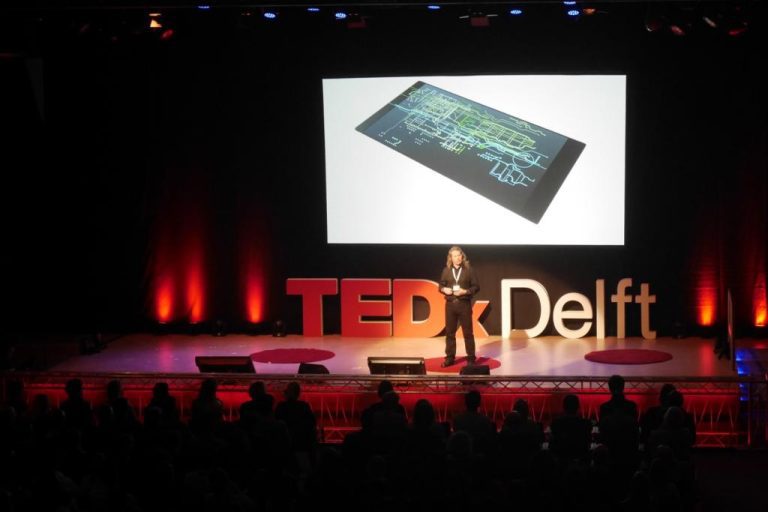
- Vreneli Stadelmaier
Vreneli Stadelmeier is the winner of the Joke Smit Award 2015 and an expert on imposter syndrome. On stage, she shared her experiences of quitting her job and later divorcing her husband. This experience made her realise how dependent she had become on him. Now she has made it her life’s goal to prevent other women from making the same mistakes as she did, and to encourage them to be ambitious and economically independent. She has found that women are more likely to experience imposter syndrome in their careers than men, and through coaching she helps them become more assertive and go for their goals.
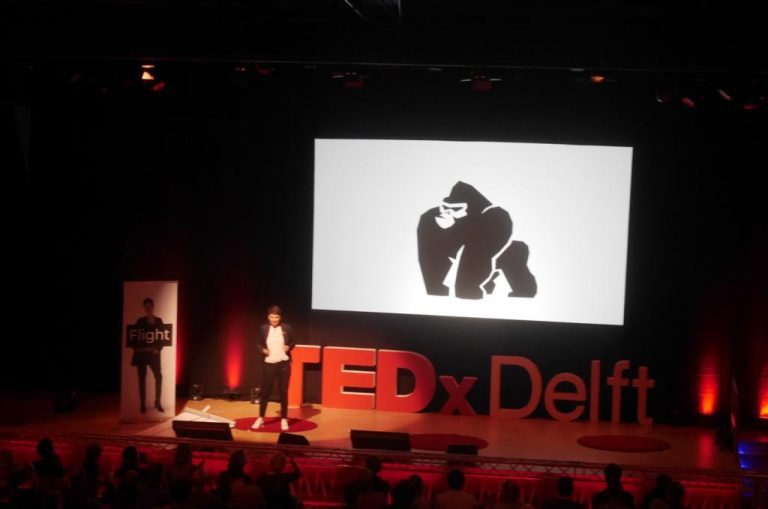
- Mata Haggis-Burridge
How can we recognise and fight the social problems that Artificial Intelligence (AI) causes? This is the question Mata Haggis-Burridge, video game developer and professor of Creative & Entertainment Games, posed and answered in his TEDx talk. His key argument was that we need to recognise that AI is only as good as the data, codes et cetera we give it. If the data is limited or the code is biased, the predictions will be equally limited or biased. Therefore, it is vital that the tech community is diversified to include multiple viewpoints. This is both ethical and a business necessity. AI reflects us in the here and now, it does not automatically fix the mistakes of the past. So if we want to do the latter, we need to take conscious action.
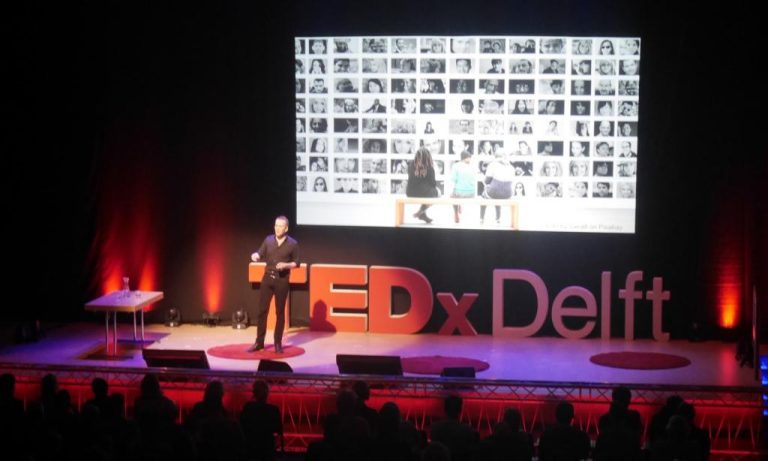
- Wessel van Beerendonk
Can robots design buildings? Wessel van Beerendonk thinks so and proves it with his RAP architecture studio. He is moving to a new architectural paradigm in which computers design complex and tailor-made buildings. He uses robots for complex repetitive processes and custom designs that are very rich in detail. Robots are also better at designing smart shapes based on nature that optimise the use of materials and use them more efficiently.
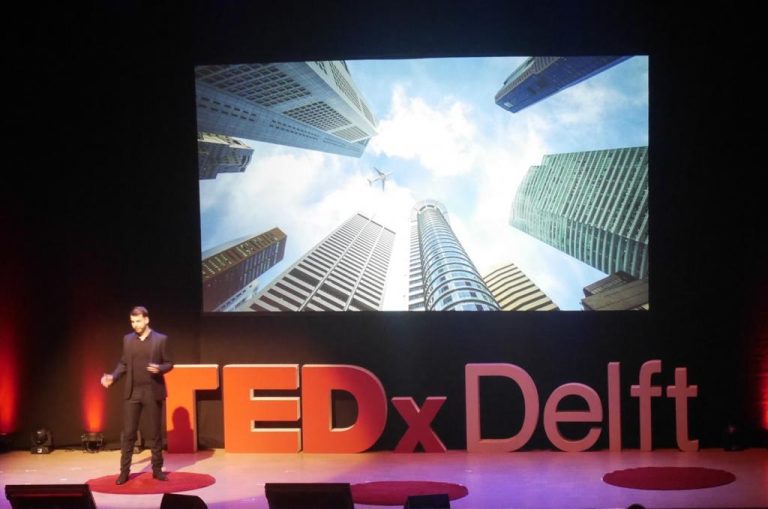
- Jonathan Schoenmaker
Jonathan Schoenmaker is a 20-year old physics student here at TU Delft, and the winner of the TEDxDelft award. He gave a personal talk about his experience of depression, and mostly talked about how the people around him dealt with his depression. He said that there are basically four ways people approached the topic. One of these was to try to show him that he has a good life and no ‘reason’ to be depressed. In the end, he found that what helped him the most was when his friends just hung out with him as they normally would, watching a movie, drinking some beers and making stupid jokes. This allowed him to just relax and take his mind off his feelings.
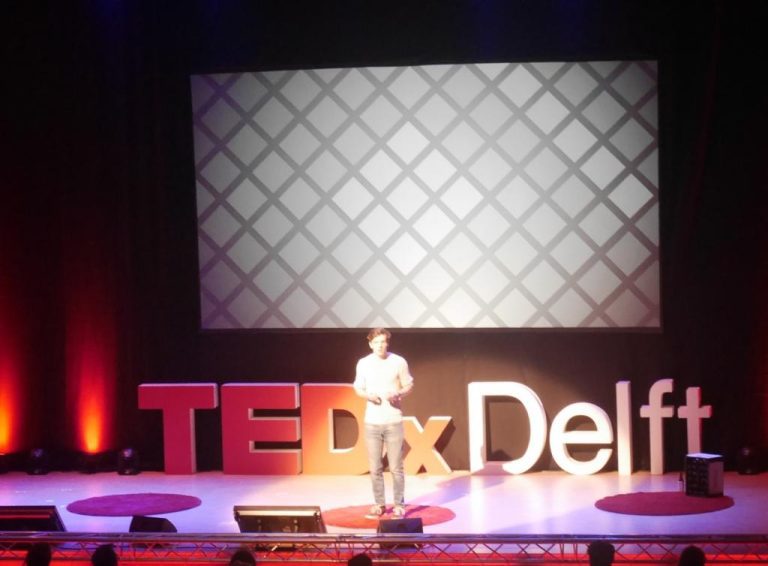
- Peter Joosten
Peter Joosten is a biohacker: he uses technology to alter and improve himself and his health. He even calls himself a human guinea pig. After numerous experiments, like diets and sequencing his DNA, he has come to three conclusions.
1) Although technology sometimes gives us the impression that there are short cuts, the truth is that there are no short cuts. Good health means hard work.
2) The best habits are often the old tried and tested habits. He used the example of meditation, which humans have been doing for thousands of years.
3) The best habits also involve a bit of discomfort, like fasting or abstinence from things like social media or alcohol.
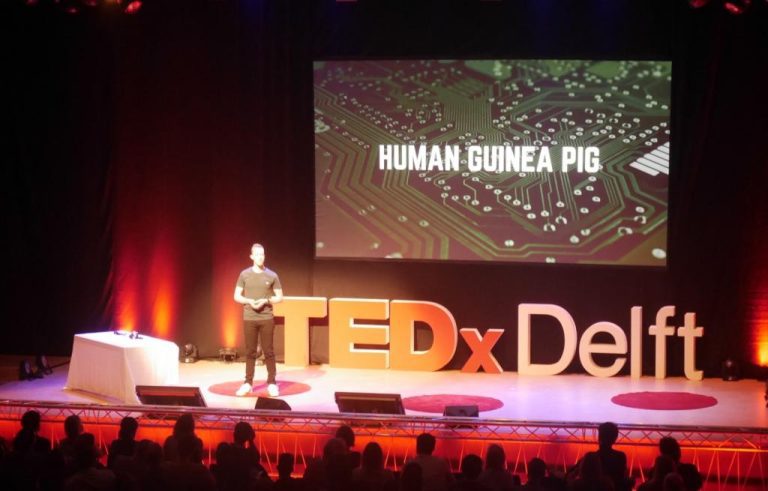
- Laura Klauss
Do you throw away your plastic cup at festivals after using it once? Laura Klauss, graduate of industrial design engineering at Delft, wants to make people aware that that piece of plastic is not disposable. She wants to give people an incentive to recycle. She has two start-ups where she makes waste valuable. One focuses on using plastic for 3D printing. Another project took place in Angola, where there is a lot of plastic waste. They found a way to convert plastic bottles into walls of tiles, using low-tech machines. In this way, the plastic waste was turned into a gold mine and an incentive for local entrepreneurs.
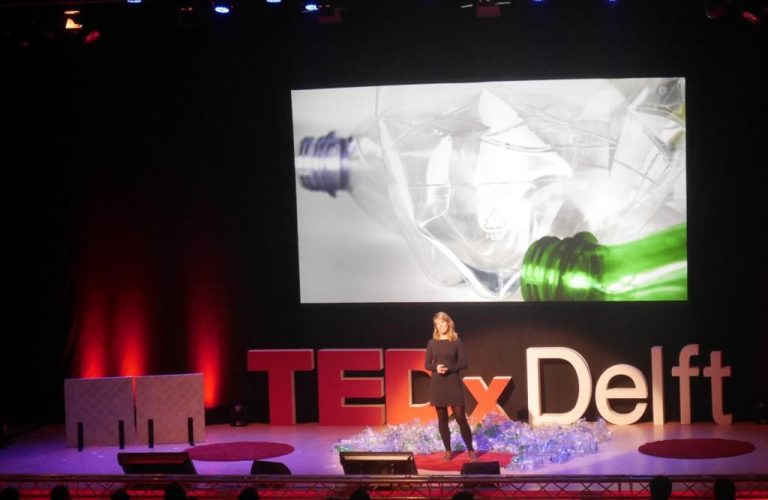
- John Sadowsky
John Sadowsky believes that everyone has a story of identity that they can use to influence the people around them. After studying the literature on leadership, he found that it was contradictory. Some studies showed that aggressive, narcissistic people are better leaders, while others showed that soft-spoken people are. So what do good leaders have in common then? They have deep self-knowledge, are not afraid to speak from the heart and they use their personal stories to influence the world. This can work for anyone. Everyone has a usable past: some people just learn to use it better.
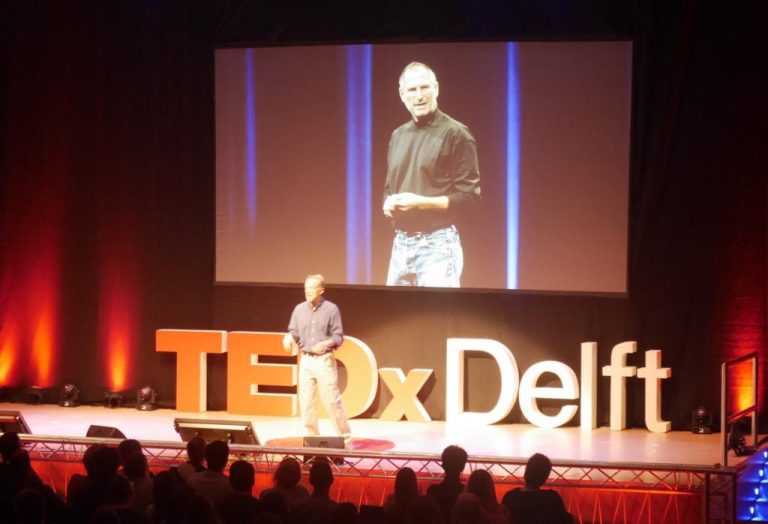
Did you miss the event? Check out the livestream here.


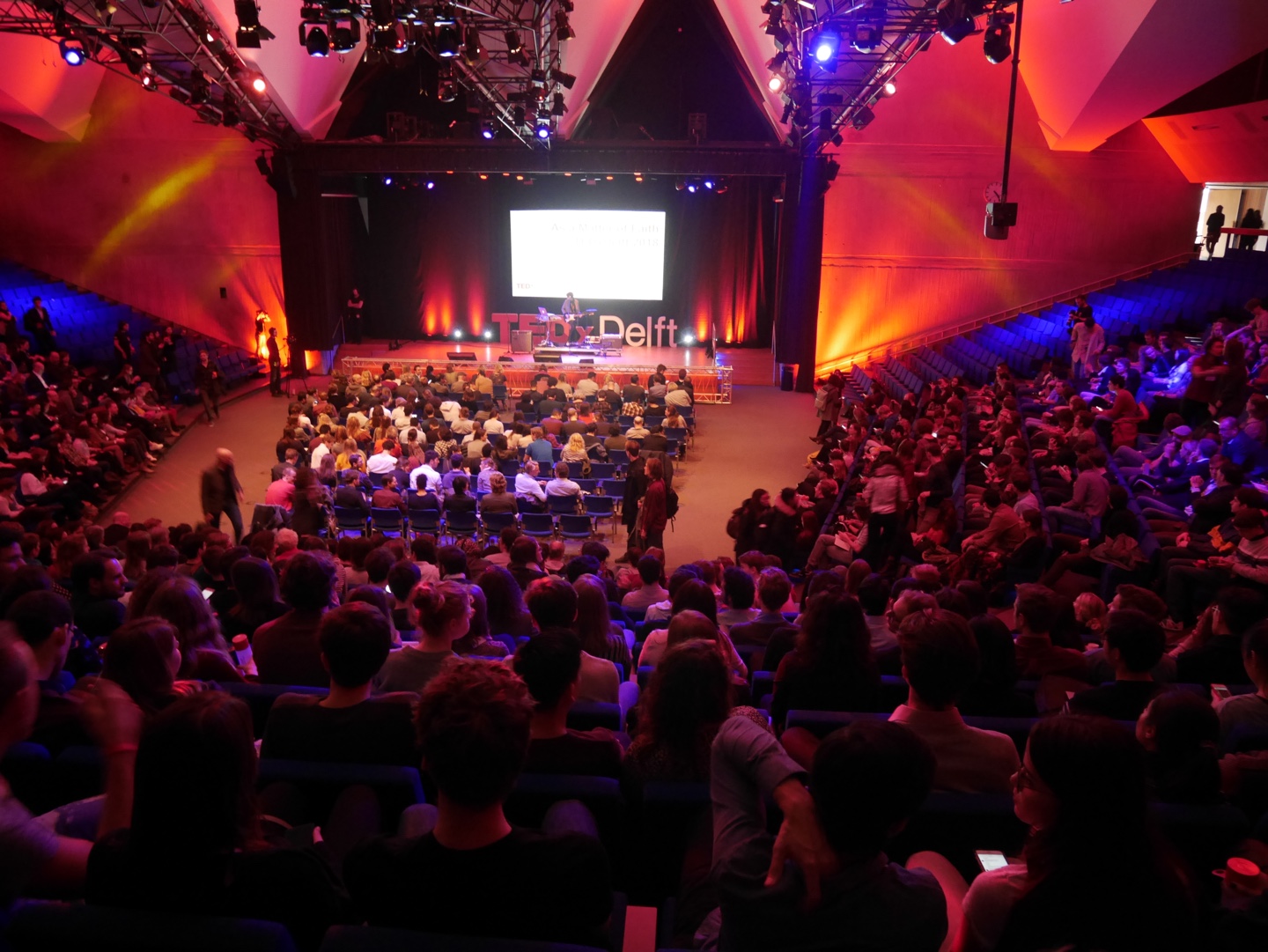
Comments are closed.